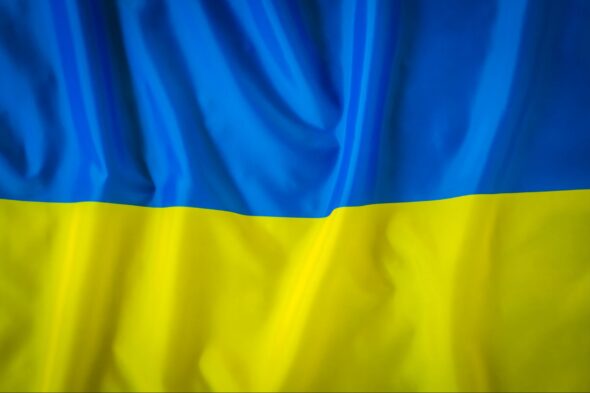Every success achieved by Ukraine improves Poland’s security, every failure undermines it. There is no better investment in Polish security than in the Ukrainian military, which is fighting against our historical enemy. The saying that the enemy of my enemy is my friend does not come from romantics – writes Patryk Gorgol, an expert on international relations.
The harrowing reports from the Ukrainian cities liberated from Russian hands clearly show that there is no price that is not worth paying to prevent such events from happening in Poland. Apart from international law and moral standards, a cold-hearted calculation should also push us to provide very broad military, political and economic support for Ukraine.
From the first day of the war, Poland and other countries of NATO’s eastern flank have been in danger from Moscow, which is why patrol missions in Poland and other alliance members have been strengthened. After all, at the very beginning of the aggression, Vladimir Putin declared that anyone who would impede the progress of the troops of the Russian Federation would have to reckon with a strong response. Then came the threat of nuclear weapons. Then, the Russians threatened a possible attack on convoys. It is no coincidence that President Biden has recently often emphasized the power of article 5 of the North Atlantic Treaty, including during his latest visit to Warsaw. Whether we want it or not – we already participate in this game as a logistics center.
If we adopt the „let’s not provoke Russia” approach, then we should limit all actions to humanitarian aid and not impose sanctions (or impose symbolic ones), because they will hurt us too. Let’s walk quietly, so as not to wake the bear, because he will eat us, and in 10 years he may not notice us, or maybe he will eat someone else first, etc. This philosophy was rightly rejected not only by the Poles (both by the government and opposition), but also by other EU countries. Economic aid to Ukraine has been abundant, the Ukrainian military can count on the supply of weapons, although not all types, and Russia has been subjected to the harshest sanctions in history. At this point, it is worth adding that sanctions – in order to be effective – usually also hit those who impose them, and this cost of the war also has to be reckoned with.
From the beginning of the conflict, it has been clear that Poland has reckoned with the risk that if Russia decides to ostentatiously attack a target in a NATO state, then the transport hub providing assistance to Ukraine is ideally suited for this task. It is also clear that NATO countries are providing Ukraine with intelligence, which is probably invaluable support in this conflict.
Only Russia is now in a much more difficult strategic situation. The aggression against Ukraine has been an embarrassment – Russia has not achieved military targets and is sustaining great losses, severe sanctions that will impact not just the oligarchs, but will also make the society poorer have been imposed, and Moscow has revealed it is not ready for a serious conflict, and its military is demoralized. The Western world will also be shocked with Russian crimes, e.g. in Bucha, and the West itself will gradually move away from Russian raw materials. Any Russian escalation makes it difficult to return to „business as usual”. Considering this, will Russia decide on a radical escalation against NATO on the territory of a NATO state? It cannot be ruled out, but such an escalation can lead to a dramatic deterioration of the situation of the Russian Federation, and this is a huge risk from its point of view, as it would find itself behind the red line set by president Biden, and on top of that, such an attack could easily fail. Instead, for now, we see Russian troops retreating from Kiev and reorienting their objectives in Ukraine.
So the cards have been dealt and it looks good from the perspective of Poland – perhaps we will not see such a beneficial situation in the coming several years. In this situation, should we fold or wait and bid higher? In this case, waiting can have the same effect as folding or bidding higher, because if Russia wants to take risk and punish Poland as a logistical center of assistance to Ukraine without paying heed to NATO’s deterrence, it will do it anyway. We are already taking some risks and that will not change, although of course we know that the risks may be slightly lower or slightly higher. History has repeatedly shown that incurring – for the moment doubtful – even such costs of assistance can be much cheaper than a possible war on the territory of the Republic of Poland, the likelihood of which increases in the event of a defeat of Ukraine. That’s why it’s worth the risk.
Of course courage should not be confused with stupidity, and it would be stupid to take actions that have not been accepted by the EU and NATO (e.g. independent sending of troops or their participation in the war). This deal is so good for us, because we have NATO as a military force and the EU as an economic force behind us, and their potential is several times bigger than Moscow’s. Russia’s attempts at deterring others from granting aid to Ukraine and imposing sanctions failed, while NATO’s deterrence still works. However, it is Poland that has the most to win in the event that Ukraine is victorious, and this is why we should be an example to others and use these organization as leverage to pursue our interests. NATO should provide Ukraine with offensive weapons, and Poland should participate in this project in order to strengthen the security of our country. We should replace the equipment we will send, and make a priority of pushing for expanding the sanctions against Russia, because, while they will indeed impact the community, they will also be another big blow to Russia.
Even a moderate Russian success in Ukraine may, in a couple of years or decades, deal a very bad hand to Poland, while Russians will have learned their lessons from the conflict with Ukraine by then. Then it may turn out that it was a mistake not to take more risks, and not to take the opportunity that came with it. Better to prevent than to treat, and now is a great opportunity to prevent problems in the future, and not just buy time. If we want to minimise the risk of a conflict on Polish territory, we must help Ukraine win this war.









